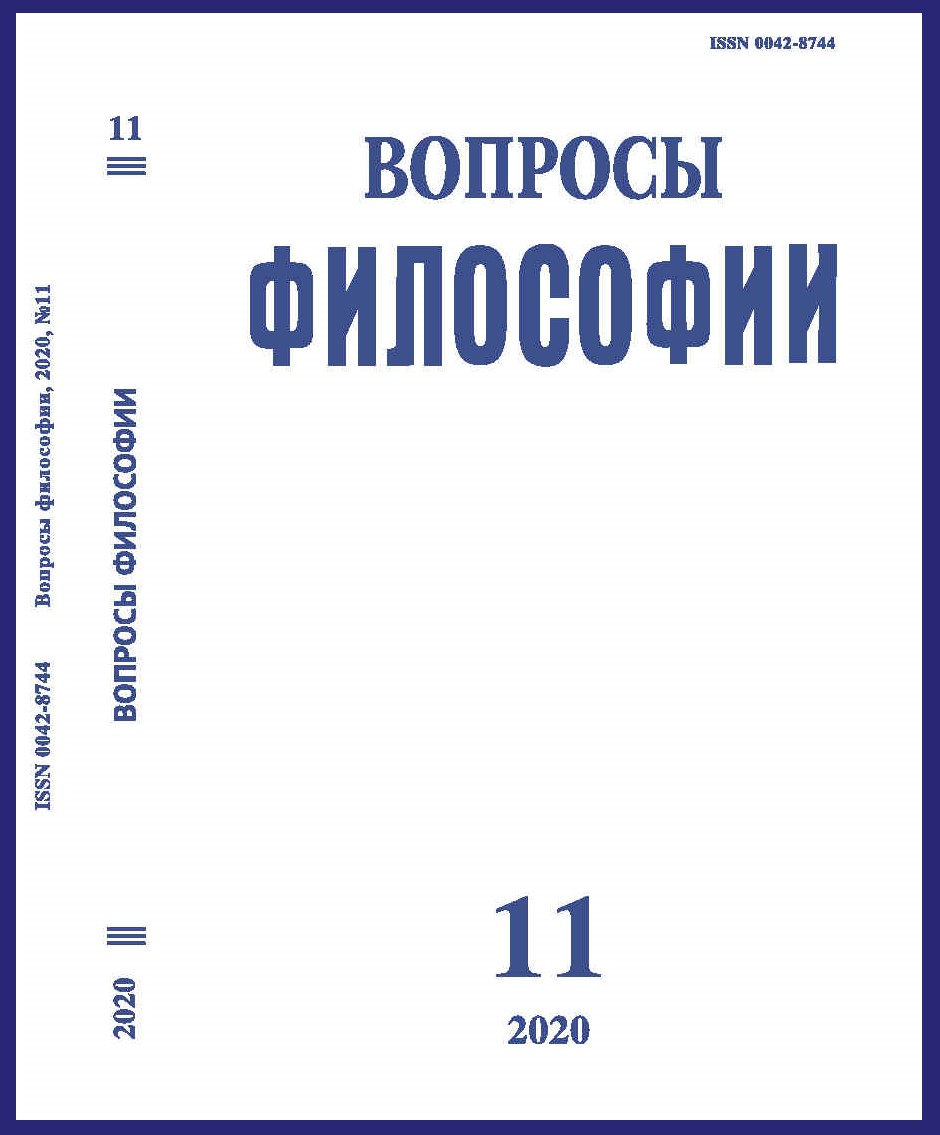Man is a “Lengthy Being”. Experience of Meta-existence
DOI:
https://doi.org/10.21146/0042-8744-2020-11-47-57Keywords:
existential philosophy, metaexistential experience, metahistory, existential formation, existential choice, guilt as a border situation, M. Mamardashvili.Abstract
The article gives an understanding of the metaexistential experience as a way to create and re-create a self-own history, “rewriting” it in an effort to understand the completeness of the collected self-existence, the existence in time. The concept of meta-existence denotes a mature level of existential consciousness, in which neither experience as a contact with the givens of existence nor reflection closely related to the experience is brought to the fore. In contrast, metaexistential experience is another reading of its own unfinished history, filled with communicative acts, comprehension of works of art, scientific and philosophical concepts. It is a more distant way of self-discovery, a creative effort to insert recursively life-meaning network of one’s own existence into multiplying cultural configurations. The author refers to a number of works of dramatic literature (J.B. Priestley, M. Frisch, P. Ustinov, E. Albee), which are considered to be the examples of metaexistential formation. This formation unfolds in the interaction of the main character with the temporal images of himself at different stages of life, each of which highlights existential entities in a new way. In the metahistory of existence – the history of himself – a person reconstructs his path “from afar”, from different temporal perspectives (from the past, present and future). The literature of modernism interprets the life crises of its characters as the manifestations of the torn consciousness, diffuse identity. This can be explained by the fundamental incompleteness and complexity of existential choice, which reveals itself in the reflexive transfer of personal situations into the space of cultural archetypes. The concept of meta-existential experience is intended to define the role of the individual as a theorist and historian of his own life, which rises to the fate in a series of successive reconstructions.

